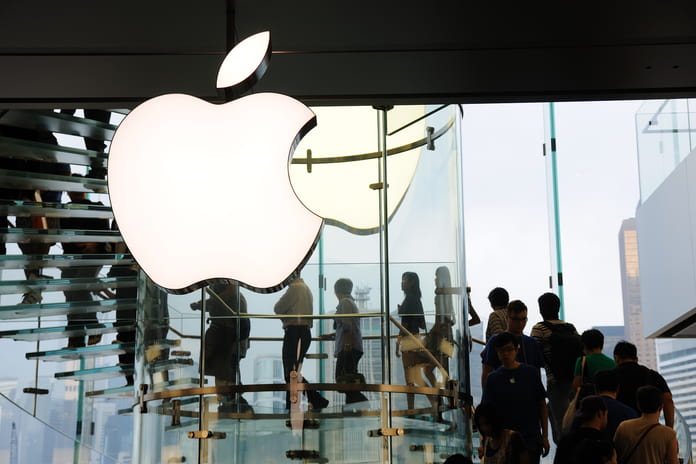A federal judge has narrowed a privacy lawsuit against Apple (NASDAQ:AAPL), which accuses the tech giant of violating user privacy by collecting personal data through its proprietary apps like the App Store, Apple Music, and Apple TV. While the ruling dismisses most of the lawsuit’s claims, it allows some aspects related to Apple’s data collection practices to proceed, raising ongoing concerns about the company’s handling of user information.
The Background of the Apple Privacy Lawsuit
The Apple privacy lawsuit began when users of iPhones, iPads, and Apple Watches alleged that the company violated their privacy rights by collecting data without their explicit consent. The case, known as In re Apple Data Privacy Litigation, is being heard in the U.S. District Court for the Northern District of California.
Users claimed that Apple breached privacy agreements and consumer protection laws by not honoring the “Allow Apps to Request to Track” and “Share [Device] Analytics” settings on their devices. According to the plaintiffs, Apple assured users that disabling these settings would prevent the company from collecting, storing, and using their data, but the lawsuit alleges that Apple continued to collect information despite these settings being turned off.
Key Claims Dismissed in Court Ruling
In a 39-page ruling issued by U.S. District Judge Edward Davila in San Jose, California, the court dismissed the majority of the claims based on the “Allow Apps to Request to Track” setting. This setting, a feature within Apple’s mobile devices, lets users control whether apps can request to track their activity across other companies’ apps and websites.
Judge Davila ruled that Apple was clear in its communication about how this setting applied. The judge noted that it was “implausible” for a reasonable user to interpret turning off the setting as a withdrawal of consent for Apple to collect data through its own apps. Consequently, any claims based on the expectation that disabling this setting would prevent Apple from gathering data from its proprietary apps were dismissed.
This decision brings some relief to Apple as the company faces increasing scrutiny over its data collection practices, alongside other tech giants like Alphabet’s Google (NASDAQ:GOOGL) and Meta Platforms’ Facebook (NASDAQ:META), which are similarly embroiled in privacy lawsuits alleging data collection without user consent.
Claims Allowed to Proceed: The “Share [Device] Analytics” Setting
While the dismissal of claims related to the “Allow Apps to Request to Track” setting is significant, Judge Davila allowed some claims tied to the “Share [Device] Analytics” setting to proceed. This setting is meant to provide users the ability to control whether they share data about their device usage and performance with Apple.
The lawsuit argues that users who disabled this setting intended to withdraw consent for any data sharing, as Apple itself states that users may “disable the sharing of Device Analytics altogether.” Despite this disclosure, the plaintiffs allege that Apple continued to collect data through this setting, making the judge’s decision to allow these claims a pivotal moment in the Apple privacy lawsuit.
Apple’s Stance on Data Collection
Apple has consistently argued that its data collection through the “Share [Device] Analytics” setting is intended to improve product performance and user experience. The company, based in Cupertino, California, maintains that the data gathered is used to enhance its services, troubleshoot issues, and develop new features. However, this stance has come under fire, as users and privacy advocates argue that such data collection practices should be more transparent and subject to user consent.
The ruling from Judge Davila keeps the pressure on Apple to clarify its data collection policies and provide more robust assurances to users about their privacy. The case is part of a broader trend of growing concern over how technology companies handle user data, including compliance with privacy laws and user consent agreements.
Implications of the Ruling
The mixed outcome of the court ruling has significant implications for both Apple and its users. For Apple, the dismissal of claims related to the “Allow Apps to Request to Track” setting removes a potential legal headache and reinforces its stance that the setting is designed only to govern third-party app tracking. However, the remaining claims related to the “Share [Device] Analytics” setting indicate that Apple will still face legal scrutiny over its practices.
For users, this lawsuit underscores the complexities of privacy settings and user agreements within technology ecosystems. The case may set a precedent for how companies disclose their data collection practices and ensure user consent in an age where data privacy has become a critical issue.
Broader Privacy Landscape
The Apple privacy lawsuit is part of a larger conversation around tech companies and user privacy. Companies like Alphabet’s Google and Meta Platforms’ Facebook are also under legal scrutiny for alleged data collection without adequate user consent. With increasing regulatory pressure and user demand for better privacy protection, the tech industry as a whole is facing calls for more transparency and stronger user control over personal data.
Conclusion
While the Apple privacy lawsuit has seen a reduction in claims, it has brought attention to the ways in which major tech companies handle user data and privacy settings. As the legal proceedings continue, both Apple and other technology firms will be closely watched for how they navigate the evolving landscape of user privacy and data transparency.
For now, Apple’s privacy policies and data practices remain under the microscope, and the outcome of this lawsuit could shape the company’s approach to user data in the future.
Featured Image: Megapixl© Bedo









